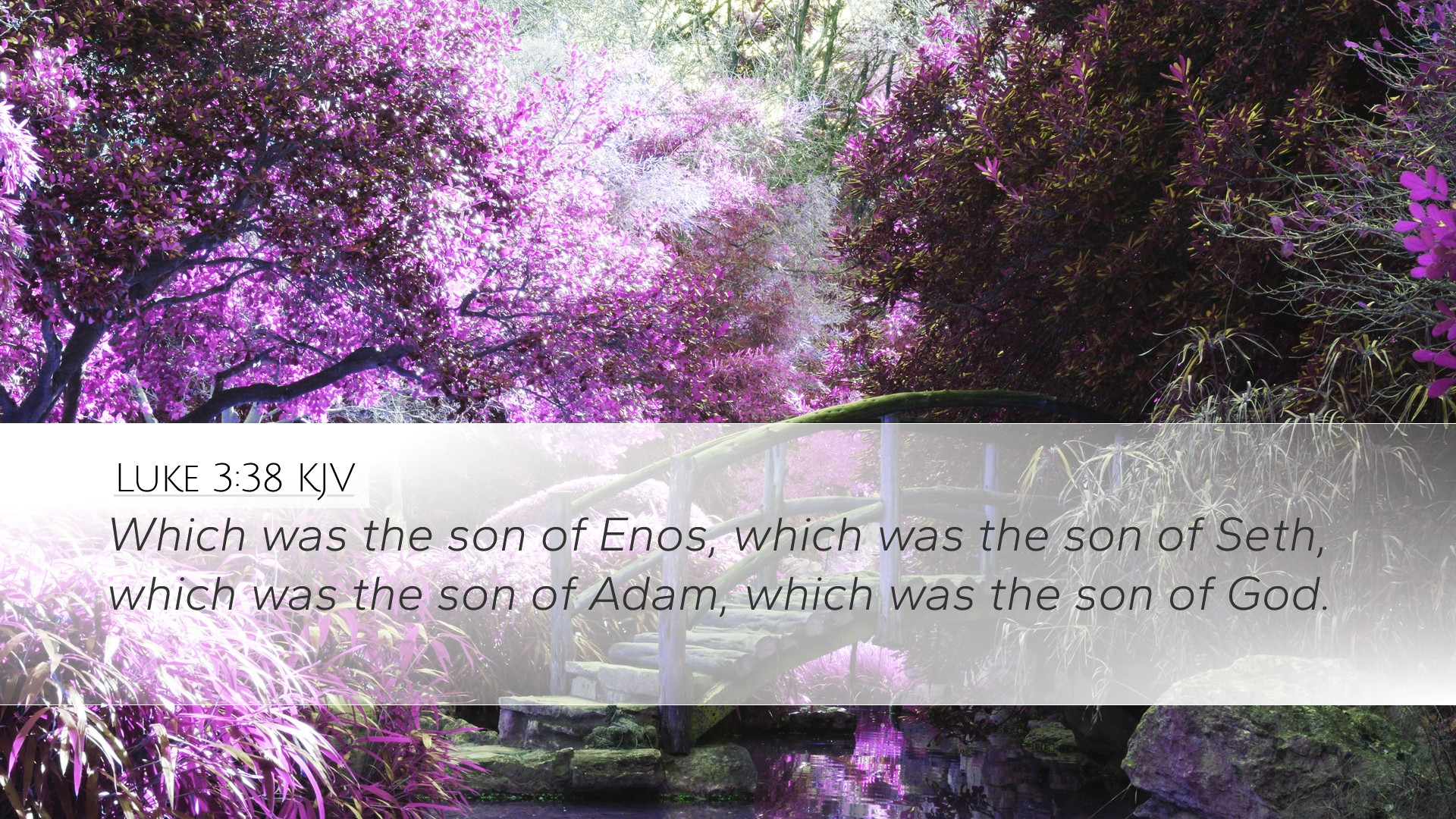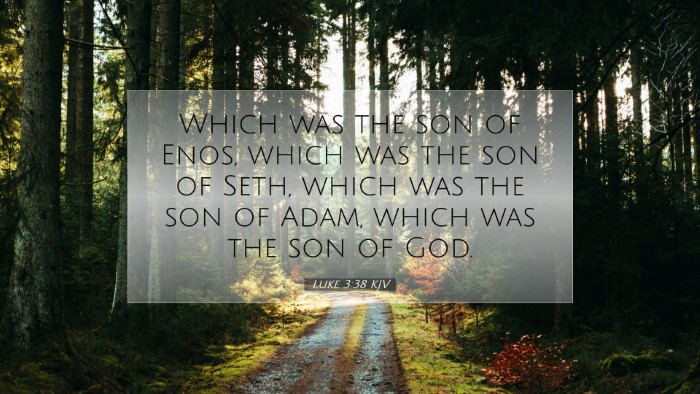Commentary on Luke 3:38
Verse Context: Luke 3:38 states, "the son of Enosh, the son of Seth, the son of Adam, the son of God." This verse concludes the genealogy of Jesus as presented in the Gospel of Luke, tracing His lineage back to Adam.
Significance of Genealogy
The genealogy presented in Luke serves multiple purposes. It establishes Jesus’ legitimate claim to Davidic descent and highlights His human nature. The emphasis on being a descendant of Adam culminates in the profound theological implications of Jesus as the 'Son of God'.
Theological Insights
- Adam as the First Man: Adam is recognized as the first man created by God, and through him, sin entered the world (Romans 5:12). Luke's genealogy emphasizes that Jesus is the new Adam, who comes to restore what was lost through the Fall.
- Universal Relevance: By linking Jesus to Adam, Luke underscores that Christ is not just a Savior for the Jews but for all humanity. This is a recurring theme in Luke's writings.
- Divine Sonship: The phrase "Son of God" is particularly significant. Jesus is affirmed as divine, yet He fully shares in human experience. This duality is essential to understanding the Incarnation and its implications for salvation.
Insights from Public Domain Commentaries
Matthew Henry
Henry remarks on the importance of the genealogy as it affirms Jesus's authority and identifies Him with humanity. He notes that the listing of names demonstrates God’s sovereignty in human history and the providential ordering of events leading to Christ. Furthermore, Henry emphasizes the idea of Christ as the fulfillment of the promises made to both Adam and Abraham, indicating the long-anticipated hope realized in Jesus.
Albert Barnes
Barnes highlights that the genealogy serves to connect Jesus to the greater narrative of salvation history. He asserts that by linking Jesus to Adam, Luke articulates the concept of universal redemption. Barnes elaborates on the notion that all humanity is united in sin through Adam's disobedience, thus necessitating a Savior who is also a descendant of Adam, capable of addressing the human condition.
Adam Clarke
Clarke provides an analysis of the implications of the title "Son of God". He explains that while all humans are created by God, Jesus’ sonship denotes a unique relationship between Him and the Father. Clarke views this verse as a declaration of Jesus’s divine authority, underscoring His role as the mediator between God and humanity. He also notes that Adam's mention connects the divine promise of redemption directly with human history.
Practical Applications for Pastors and Theologians
- Understanding Identity: This passage invites reflection on identity—understanding who we are in relation to Christ, and how our broken lineage in Adam can be redeemed through Jesus.
- Preaching the Gospel: The connection between Jesus and Adam can enrich preaching, presenting the Gospel as a story of redemption that spans from creation to consummation.
- Encouragement in Ministry: The acknowledgment of Jesus as the Son of God who embodies the hopes of humanity encourages believers and ministers to offer hope and healing in a broken world.
Conclusion
Luke 3:38, while appearing as a simple genealogical entry, is rich with theological significance. Through the insights of various commentators, we appreciate the depth of meaning in Jesus being called the "Son of Adam" and the "Son of God." This verse serves as a reminder of God's overarching plan for redemption through Jesus Christ, calling us to embrace our identity as restored children of God.


